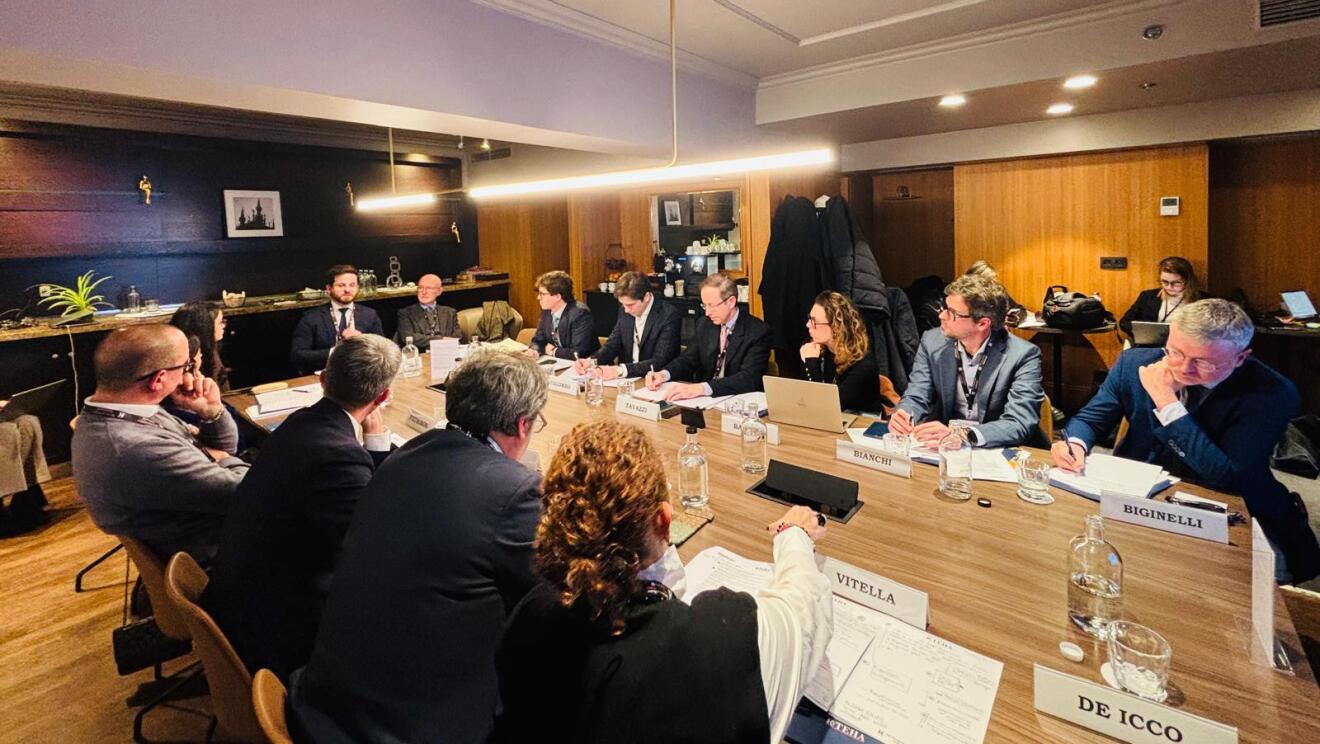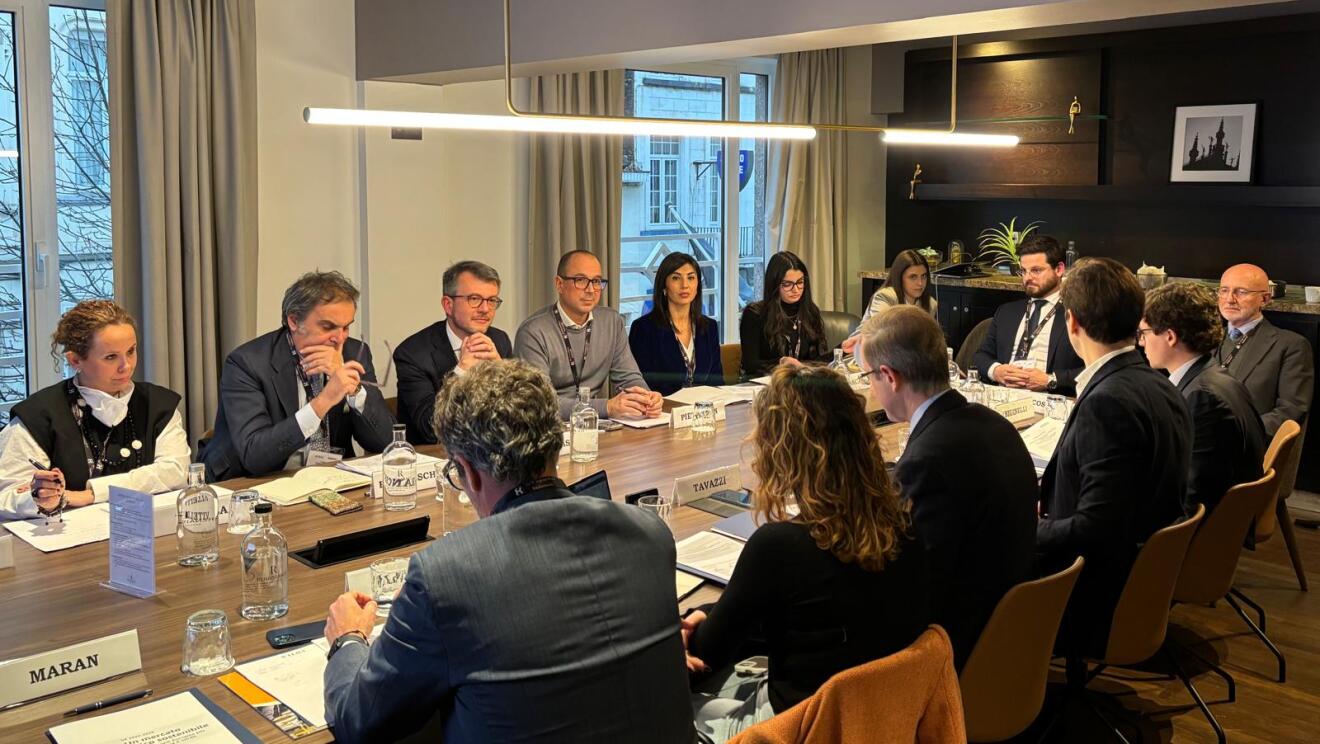On Monday 9th December in Brussels, The European House - Ambrosetti (TEHA) and Amazon organised a meeting to discuss e-commerce's role in economic integration and the development of the EU Single Market. The event brought together European institutions, trade associations, and Italian small and medium-sized enterprises (SMEs).
Key findings on e-commerce's economic impact
Lorenzo Tavazzi, Senior Partner and Board Member of TEHA, presented the results of the study "E-commerce: perceptions and evidence on benefits for citizens, businesses, and the Italian economy", highlighting the crucial role of e-commerce in the current economic climate. Tavazzi emphasised how, in a period of slowing economic growth and high inflation, e-commerce proves to be a sector capable of generating structural benefits for the Italian economy and citizens. He reported that in Italy:
- Italy's e-commerce supply chain generates €70 billion in turnover and supports 380,000 jobs.
- Over the last six years, e-commerce's deflationary effect reduced inflation in Italy by an average of 5%.
- The online channel could potentially generate up to €110 billion for the Italian economy, equivalent to 5% of GDP in 2023. This potential can be realised through stimulating revenue growth, expanding the customer base, and supporting export for businesses, particularly SMEs.
E-commerce and the EU Single Market
The meeting highlighted how e-commerce is redefining the dynamics of the Single Market, offering Italian SMEs unprecedented opportunities for expansion beyond national borders.
Maria Antonietta Orlando, Founder and CEO of tie, bow-tie, and scarf SME Remo Sartori, shared how a presence on Amazon has simplified the company's access to the European Single Market, leading to growth in sales and brand visibility. She highlighted how, with a single seller account, the company reaches millions of customers in countries such as Germany, France, Spain, Austria, and Belgium, without logistical complications or substantial advertising investments. She also emphasised how Amazon's support in managing local regulations and automatic translation of listings have allowed the company to overcome the complexities of international sales, focusing on the specific needs of customers in different markets.
Paolo Pietrobon, Chief Executive Officer of food business Pasticceria Fraccaro 1932, shared his business story, explaining how Amazon allows them to amplify the potential of their small shop specialising in high-quality products, and to leverage the opportunities of the Single Market. He described how, thanks to Amazon's storefront and pan-European programme, his business sells its premium products across Europe without complications, reaching important markets such as Germany, France, and the UK. He also emphasised the added value of online visibility on Amazon, also thanks to search engines, which has helped grow the brand among European consumers.
Challenges and opportunities
Following the recent reports by Mario Draghi and Enrico Letta on European competitiveness, participants at the meeting agreed on the need for policies that promote regulatory simplification and harmonisation, and to foster digital innovation.
Nicola Bianchi, Head of Services, Projects, and Partnerships at EDI Confcommercio, highlighted how online demand continues to grow, emphasising however that adoption by businesses is still limited. Bianchi described the role of Innovation Desks (SPIN) as strategic reference points to guide businesses and bridge gaps in digital skills.
Giorgio De Bin, Secretary General of the Belgian-Italian Chamber of Commerce, highlighted how large companies, although representing only 0.7% of exporting companies, contribute 36% of total exports. In contrast, small companies, which constitute 74% of exporting companies, generate only 8.7% of exports. De Bin emphasised the potential of SMEs in internationalisation, stressing the crucial role of e-commerce and the Italian Chambers of Commerce Abroad in supporting this process.
Matteo Bassi, Head of Economic Policy & Regulation Italy at Amazon, outlined the company's commitment to the region, including investments of €180 billion in the EU since 2010. In Italy, Bassi specified, the investment of €20 billion has supported Italian 21,000 SMEs, which exported for 1.2 billion in 2023, with the goal of reaching 4 billion in exports by 2025.
The meeting underscored the importance of strategic collaboration between the public and private sectors to maximise the potential of e-commerce in the EU. E-commerce emerges as a key element for European economic integration, offering businesses new opportunities for cross-border expansion and contributing to the EU's competitiveness.














